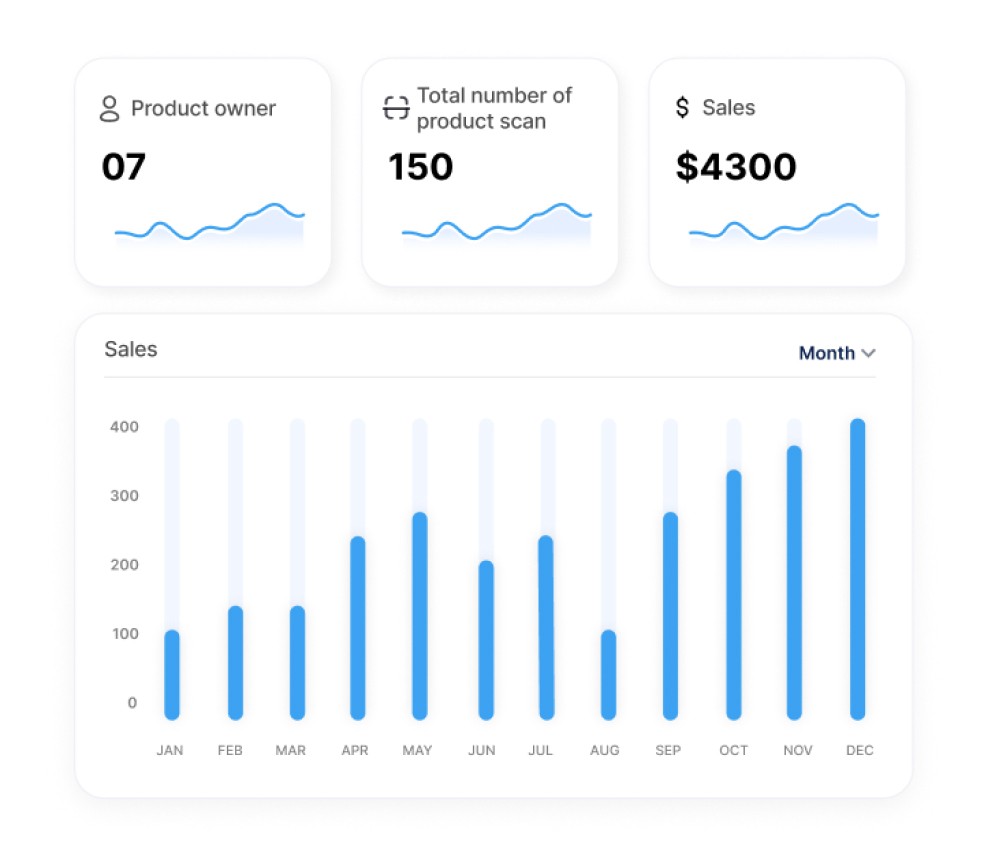From mislabelling GMO produce as organic to lacing infant milk with melamine, easily one of the most reprehensible displays of greed over safety is tampering and fraud within the food and beverage industries.
Unlike other household goods and products, issues in the food and drink market can have deadly consequences. In this post, we’ll look at the targets of this underground industry, its victims, as well as some of the perpetrators most profiting from this illicit underground market.
We’ll then explore how XenTag can help rebuild brands in the face of food scandals by developing community trust. That’s because XenTag helps you know where your products are and where they’ve been, offering immutable data and a clear chain of command.
The human consequences of counterfeit goods
When it comes to fraud and wilfully counterfeiting products in the food and drink industries, fake packaging is as common as adulterated ingredients. Tragically, there are often mortal consequences to this illicit practice. In 2008, the Chinese milk scandal would claim the lives of six infants and endanger more than 300,000 nursing babies.
This criminal disaster involved the infant formula of Sanlu Group, which had augmented its formula components with melamine. According to reports, melamine was added “to increase the nitrogen content of diluted milk, giving it the appearance of higher protein content in order to pass quality control testing. Of an estimated 294,000 victims, six babies died from kidney stones and other kidney damage, and an estimated 54,000 were hospitalized.”
After the initial focus on Sanlu, a leading producer of infant formula in China, additional government inspections revealed that products from 21 other companies had also been tainted.
This raised alarms about food safety and political corruption in China, resulting in a number of criminal trials conducted by the Chinese government. In the wake of the 2008 Chinese Milk Scandal, the criminal trials resulted in the firing or forced resignation of government officials, three sentences of life imprisonment and two executions.
Yet that same year, in late 2008 in China and around the world, “similar adulteration with melamine was discovered in eggs,” and other food, the Wikipedia entry reads. “The source was traced to melamine being added to animal feed, despite a ban imposed in June 2007 following the scandal over pet food ingredients exported to the United States.”
In the end, those 22 companies found to have been selling tainted products “set up a fund to compensate families for deaths and illness. But the amounts were small for families whose children needed a lifetime of care,” Quartz documented.
The current state of global food safety
The reality is that food safety is an ever-changing, complex realm with a variety of very real threats.
It’s not just in China that milk faces safety issues. In a retrospective article evaluating the decade since the Chinese Milk Scandal broke, Quartz business journal noted that no nation is immune. “Earlier this year, a French milk-powder producer recalled 7,000 tons of infant formula after babies fell ill consuming products from the firm contaminated with salmonella.”
Packworld, which comments on global trade, notes that lead has been found inside the spice turmeric, harmful industrial dyes for colour have been found in spices, palm oil, dog food and more.
In addition to the added adulterations are the undeclared substances. “When such substances are allergens—such as with peanut or soy proteins—the safety issues are obvious,” they note.
Often, peanut products are added to cumin in an effort to increase its volume, which then lead to cumin recalls, as was the case in 2014.
To date, the risk of a food safety incident remains high while public trust remains low, in China and beyond.
Huang Yanzhong, a senior fellow for global health at the Council for Foreign Relations in New York reported on the general perception in China of a “moral decline,” a time when “people try to make money by whatever means it takes.”
“It’s very hard to have a strong sense of optimism,” stated Yanzhong.
2022 and beyond: Know your sources
It’s smart to be prepared and stay informed. Global governments and commerce alike are all undergoing a digital transformation. Joint efforts across industries will continue making strides in vanquishing dangerous frauds in the food and beverage industries.
Consumers are likewise expected to make a considerable impact. Packworld foresees “packaging makers” can expect their food customers to “request specific steps or information” to combat food fraud. Fortunately, technology today makes it possible to protect the supply chain intelligently.
How XenTag helps stop dangerous counterfeits
Each player in the supply chain is expected to take protective measures against further fraud. Everything—from the authenticity of life-saving drugs to ethical farming, to assuring the inherent nutritional value of organic food—can and should be assured.
Yet it has never been so easy for criminals to use fake packaging and labelling, or tamper with food elements.
Quality and safety matter. That’s why XenTag makes food production and safe handling primary goals. XenTag is an embedded RFID/NFC tag that can determine whether a product has been damaged, broken or mishandled.
This tamper-proof tag tracks and evaluates your valuable merchandise, pharmaceuticals, cosmetics, art or other valuables, allowing your clients to securely evaluate the authenticity, origin, history and proof-of-custody of products throughout the entire supply chain.
Here are just a few of the next-gen protections afforded by XenTag:
- Organic Food assurance anti-tamper: Tamper-proof XenTags can protect organic produce and assure the consumer peace of mind and original product assurance.
- Reinforced 3-layer security: The XenTag hardware and all product data is protected by 3 layers of security. Far more secure than QR or barcodes, the data produced by the tag cannot be replicated.
- Protecting individual pallets: XenTag can track all consignments at pallet level as they move through critical checkpoints in the supply chain.
- Authenticity of product assurance: Allows your consumers to check the authenticity of your products in an effortless, frictionless way.
- Know Your Customer (KYC) feature: XenTag offers a feature to filter customer feedback, eliminating anonymous customers and bogus bots.
- Universally Unique Identifiers (UUID) protection: Data is protected by random, number-generated codes that change with every login, and stored on a public blockchain.
- Advanced tag encryption: Every tag is encrypted with machine-generated AES-128 cipher Advanced Encryption, then combined with the random generator on the tag to ensure the tag is unique. Non-cloneable, cannot be repurposed, and information stays encrypted.
We help prevent counterfeiting and build community trust through immutable data. XenTag is the next evolution of supply chain and brand protection.
Let ZenduiT help guide your company through its digital transformation. Contact our consultants today for a free demonstration and see if XenTag is right for you.





















